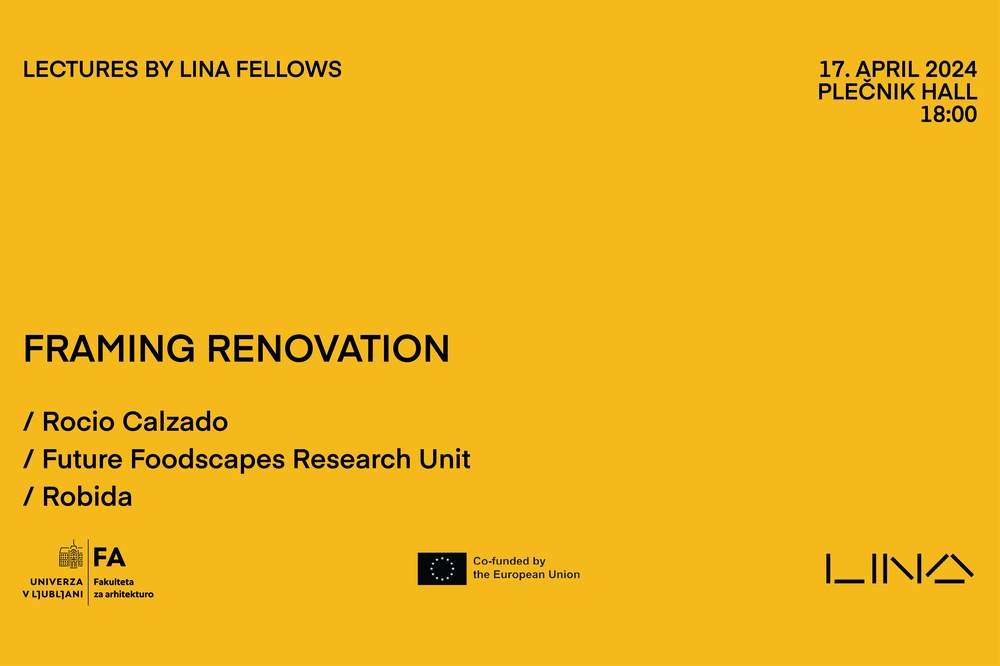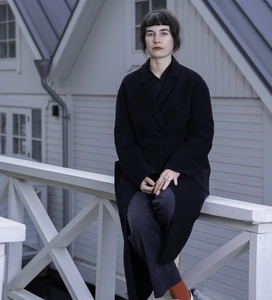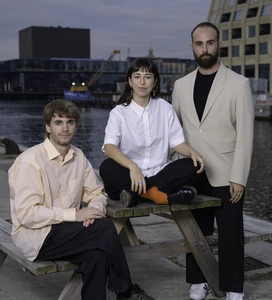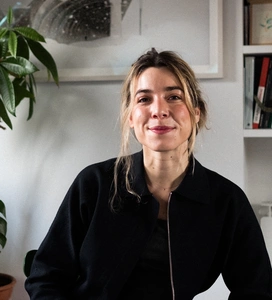Lectures on Framing Renovation

Renovation and reuse are often encountered in slogans promoting sustainable development that have seeped out of political economy into contemporary architectural theory and practice. At the same time, they are the means and the goal of the very necessary transition that is facing architecture. How can we frame those terms without falling in the trap of oversimplification? Is it possible to develop a discursive and practical post-anthropocenic approach to renovation and reuse that clarifies the core and context of these terms?
Framing Renovation is a joint activity of the Faculty of Architecture of the University of Ljubljana with the online media platform e-flux, within LINA, the European architecture platform. Within this editorial collaboration, ten articles will be published on e-flux in May 2024, and will deal with the concept of renovation. Among the authors are three LINA fellows, emerging spatial practitioners featured in the Faculty of Architecture’s contribution to the 2023–24 LINA Architecture Programme.
You are kindly invited to attend 3 lectures, in which LINA fellows will present different concepts where renovation can be contextualised and defined: a case of social housing, a food system, and a village. Three 20-min lectures will be followed by a discussion.
Location: Plečnik Hall, Faculty of Architecture UL (Zoisova cesta 12, Ljubljana, Slovenia)
Time: 17 April, 18:00
Lectures by LINA fellows
Rocio Calzado: ARCHITECTURE AND POLITICS. A TAXONOMY OF CORVIALE HOUSING ESTATE
If architecture and politics are intrinsically related is because there exists a continuous interaction between governance dynamics and the built environment. Corviale’s history elucidates the mechanisms that give rise to this relationship and reveals tools to operationalize architecture’s influence on politics. By revealing the complex decision-making networks around each element of Corviale, this lecture recalls how transformation, as an architecture practice, requires absorbing the complexity of the interconnected elements of a building, and the variety of logics found in their performance over time.
FFRU: FUTURE FOODSCAPES
At a time when energy issues are more relevant than ever, food remains in the background. Yet the way we produce, distribute, and consume food mobilizes our societies, shapes our metropolises, and transforms our geographies more radically than any other energy source. In this lecture, the FFRU looks at the potential impact of reshaping the food system as an architectural endeavour. In a world where the molecular is tectonic, and where every bite we take reverberates across the planet, now more than ever, we must redesign it with its ecosystemic implications in mind, aiming to create a more sustainable, equitable, and resilient future.
Robida: RESTORING THROUGH DWELLING: THE CASE OF TOPOLÒ
Can the renovation of post-rural, abandoned villages today be imagined not as a radical transformation of their function and configuration, but rather as a slow, continuous practice of inhabiting them? Rather than planning and intervening, restoring the relationships with the place and its dwellers, observing and inventing new modes of staying with the place. Robida envisions the restoration of the village of Topolò – of its abandoned houses, neglected public spaces and ruderal landscape – as if it was a decentralised house where singular buildings are its rooms and the small streets between the houses are the connecting hallways. The project Topolò/Topolove: the Village as House, assigns specific communal programmes to different empty houses of the village. This spatial decentralisation of the house is also an extension of the relation of care, which is directed not only to private spaces but also to common buildings and the spaces between them. The project is an experiential exercise of collective care-taking of a place, where the inhabitants are re-imagined as stewards and custodians of the village.
Related fellows


